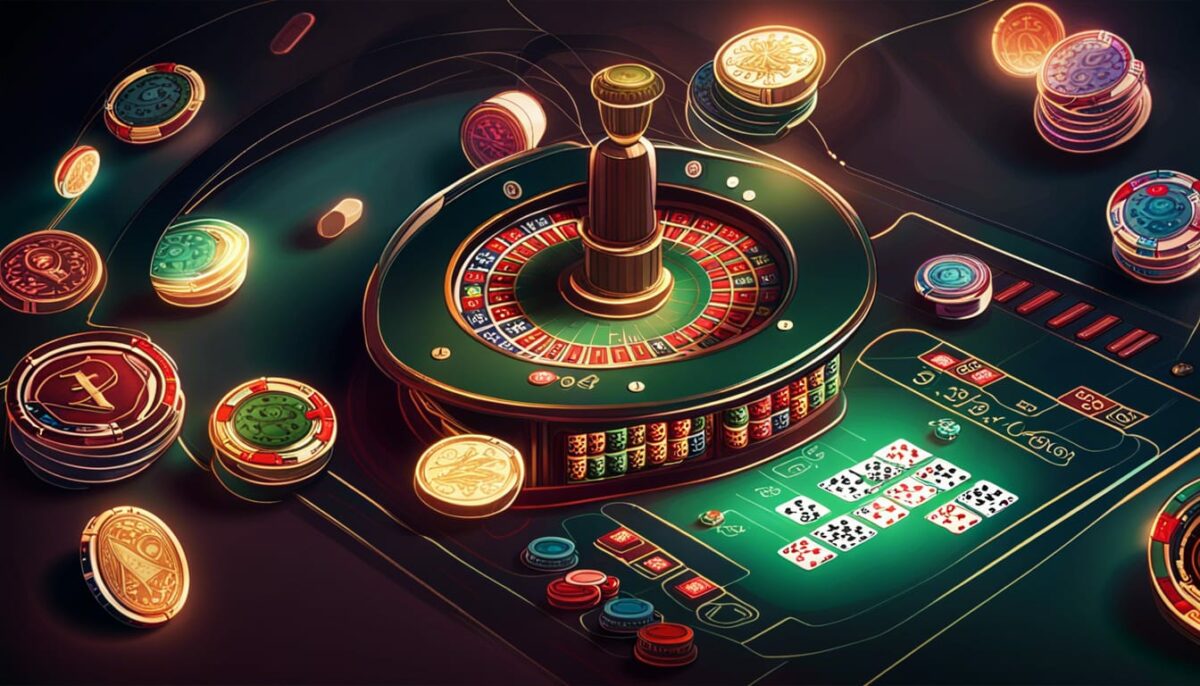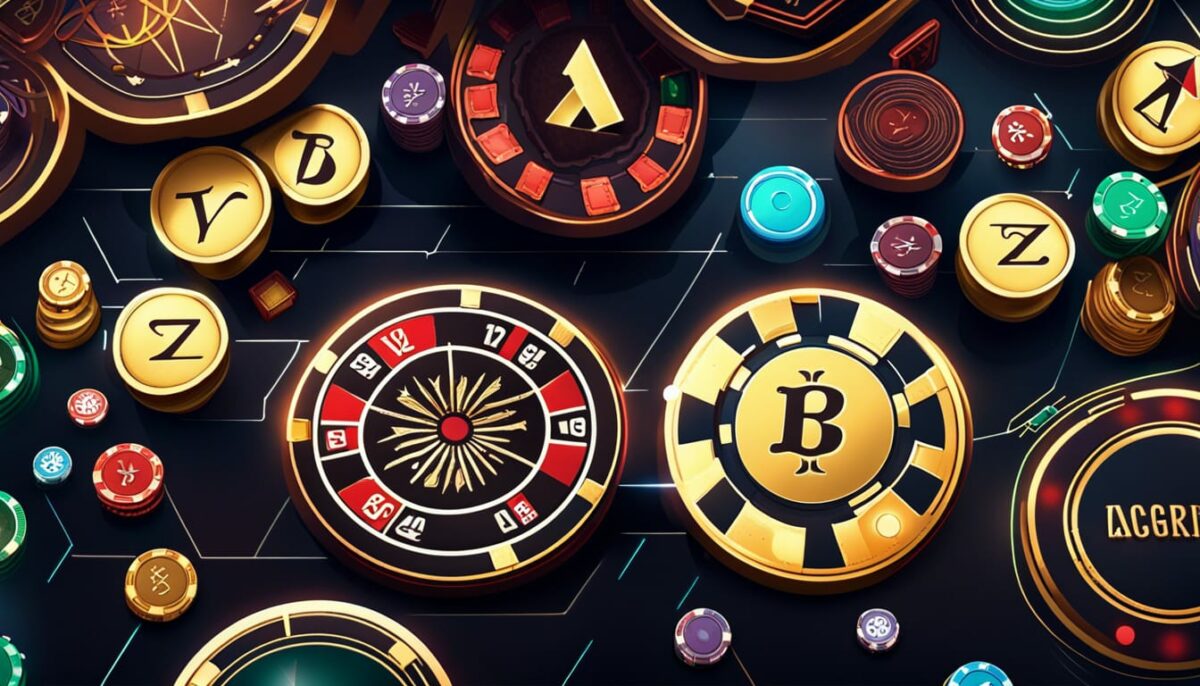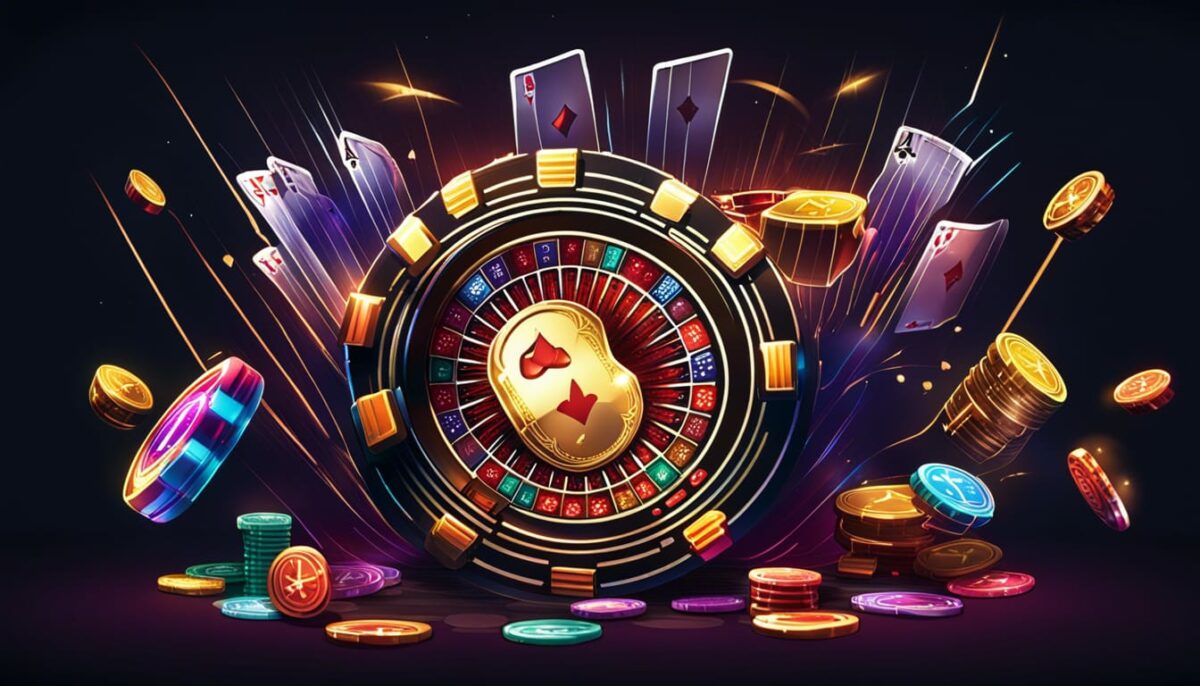Crypto Casino Tokens Key Takeaways
The U.S. regulatory landscape for cryptocurrencies, including crypto casino tokens, is multifaceted, involving several federal institutions such as the Financial Crimes Enforcement Network (FinCEN), the Securities and Exchange Commission (SEC), and the Commodity Futures Trading Commission (CFTC).
The nature of a digital asset, such as whether it's a money transmitter, security, or commodity/derivative, will determine which federal institution will regulate it.
State-specific regulations may also apply to the usage of digital assets, including the operation of crypto casinos.
Crypto casinos must comply with numerous laws, including the Bank Secrecy Act (BSA) and its amendments, and may need to register with FinCEN, SEC, and CFTC, depending on the nature of their casino tokens.
Recent legislation has been introduced to further clarify the treatment of digital assets, including crypto casino tokens, under federal securities laws.

Introduction
Just as Adam B. Levine once said, "As the value goes up, heads start to swing, and skeptics soften. Starting a new currency is easy. Anyone can do it. The trick is getting people to accept it because it is their use that gives the 'money' value." That's exactly what we're seeing with Crypto Casino Tokens. It's not just about creating a new form of currency; it's about making it so irresistible that people want to use it. And believe it or not, this is happening right now with the Benefits of Using Crypto Tokens in Online Casinos.
But just like any new technology, investing in Crypto Casino Tokens comes with its own set of Risks and Challenges. As thrilling as it is to see this new form of gambling take off, it's equally important to understand the Legal Aspects and Regulations of Crypto Casinos in the US. So, let's get started, shall we?
The Technology Behind Crypto Casino Tokens
Let's start with the basics. How do Crypto Casino Tokens work?
First, you have a blockchain, which is a decentralized digital ledger that records transactions across many computers. Then, you have a token, which is a digital asset that is issued and managed on a blockchain. Lastly, you have a Crypto Casino Token, which is a token specifically designed for use in an online casino.
To put it simply, a Crypto Casino Token is like a digital chip that you can use to play your favorite online crypto casino games. But instead of being controlled by a central authority like a traditional casino, these tokens are managed by a decentralized network of computers.
Here's a quick comparison table:
| Crypto Casino Tokens | Traditional Casino Tokens |
|---|---|
| Decentralized | Centralized |
| Digital | Physical |
| Transparent | Not Transparent |
| Secure | Vulnerable to Fraud |
Benefits of Using Crypto Tokens in Online Casinos

So why would you want to use Crypto Tokens in online casinos? Here are a few reasons:
- Anonymity: Crypto transactions can be made anonymously, providing privacy for players.
- Security: Blockchain technology makes it nearly impossible for hackers to interfere with transactions.
- Low Fees: Crypto transactions typically have lower fees than traditional payment methods.
- Global Access: Crypto casinos can be accessed from anywhere in the world, breaking down geographical boundaries.
However, there are also a few downsides to consider:
- Volatility: The value of cryptocurrencies can fluctuate wildly, which could affect your gambling budget.
- Technical Understanding: To use Crypto Tokens, you need to have a basic understanding of cryptocurrencies and blockchain technology.
Risks and Challenges of Investing in Crypto Casino Tokens
Investing in Crypto Casino Tokens is not without its risks and challenges. Here are a few things you should be aware of:
- Regulatory Risk: The legal landscape for Crypto Casinos is still evolving, and changes in regulations could impact the value of your tokens.
- Market Volatility: As mentioned earlier, the value of cryptocurrencies can fluctuate wildly.
- Security Risks: While blockchain technology is secure, there are still risks associated with online wallets and exchanges.
How Crypto Casino Tokens Work
In the heart of any crypto casino token is blockchain technology. Blockchain, a decentralized ledger system, is what makes these tokens tick. Thanks to this revolutionary technology, transactions with crypto tokens are transparent, secure, and tamper-proof. This means that every bet you make, every jackpot you hit, and every token you earn is recorded and verifiable on the blockchain.
What's more, crypto casinos often provide provably fair games. In a nutshell, this means that the fairness of each game can be verified by users themselves. It's the ultimate transparency that adds a layer of trust between the casino and its players.

Benefits of Using Crypto Tokens in Online Casinos
Why would you want to gamble with crypto tokens? There are several compelling reasons:
- Speedy Transactions: Crypto transactions are typically processed much faster than traditional banking methods. You won't be waiting for days to start playing or to cash out your winnings.
- Anonymity: Many crypto casinos don't require personal information to sign up. This allows you to play your favorite games while keeping your identity private.
- Low Transaction Fees: When you transact with cryptocurrencies, you often pay lower fees than with traditional banking methods. More money for your bets!
- Global Access: Crypto casinos are typically accessible from anywhere in the world, as long as you have an internet connection and legal access to gambling activities.
- Provably Fair Games: As mentioned earlier, the transparency of blockchain technology allows players to verify the fairness of games.
Risks and Challenges of Investing in Crypto Casino Tokens
Just as with any investment, putting your money into crypto casino tokens isn't without its risks. Crypto tokens are known for their volatility, meaning their value can fluctuate wildly in short periods. There's the potential to see great returns, but also the risk of losing your investment if the value plunges.
In addition, the legal status of crypto casinos varies worldwide, and some jurisdictions have strict regulations on gambling with cryptocurrencies. It's important to understand the laws and regulations in your area before you start playing.
Legal Aspects and Regulations of Crypto Casinos in the US
Navigating the world of crypto regulation in the US can be a bit of a minefield. Cryptocurrencies, including crypto casino tokens, are subject to a complex web of regulations that can vary depending on the nature of the asset.
At the federal level, several institutions have a hand in regulating digital assets. These include the Financial Crimes Enforcement Network (FinCEN), the Securities and Exchange Commission (SEC), and the Commodity Futures Trading Commission (CFTC)
But it doesn't stop there. Each state can implement its own regulations regarding the use of digital assets, adding another layer of complexity to the regulatory landscape.

US Crypto Regulatory Regulation
The regulatory landscape of cryptocurrencies in the United States is complex and ever-evolving. The country is still working towards crafting a set of efficient digital asset regulations, which currently includes various federal laws that could apply to cryptocurrency services, depending on the nature of the asset. The responsibilities among regulators isn't always clear-cut, and each state can implement its own regulations regarding the use of digital assets. As such, regulators and politicians are actively developing a comprehensive regulatory framework for digital assets.
In the U.S., there are several federal institutions that regulate digital assets, with the exact institution in charge depending on whether an asset is a money transmitter, security, or commodity/derivative. The main ones include:
- The Financial Crimes Enforcement Network (FinCEN), which regulates digital assets for the purposes of Anti-Money Laundering (AML) and Countering the Financing of Terrorism (CFT);
- The Securities and Exchange Commission (SEC), which oversees the issuance and resale of digital assets that are considered to be securities;
- The Commodity Futures Trading Commission (CFTC), which regulates digital assets if they are primarily classified as commodities or are used as derivatives.
The U.S. regulatory framework stands apart from the rest of the world, as digital assets can fall under the jurisdiction of different regulatory authorities depending on their nature. For instance, AML/CFT obligations apply to entities that the Bank Secrecy Act (BSA) defines as “financial institutions,” which includes money services businesses, securities brokers/dealers, futures commission merchants, introducing brokers in commodities, mutual funds, and more. In 2019, FinCEN issued guidance where it considered applying the BSA to common business models involving the transmission of digital assets. Therefore, several business models can be considered regulated under certain circumstances, such as peer-to-peer exchangers, hosted wallet providers, operators of Convertible Virtual Currency (CVC) kiosks, decentralized applications (DApps) performing money transmission, providers of anonymizing services for CVCs, and more.
The legal landscape of digital assets is governed by a comprehensive framework of laws, including the Bank Secrecy Act (BSA), which is further bolstered by amendments from the US Patriot Act and the Anti-Money Laundering Act (AMLA). In addition, the Securities Exchange Act and the Commodity Exchange Act (CEA) provide guidelines for the registration of assets identified as securities and commodities.
While the regulatory landscape for cryptocurrencies is extensive, it's important to note that crypto mining is legal in all states across the country. However, specific regulations may be imposed by individual states, particularly concerning the energy consumption associated with mining activities. For example, New York has pioneered a two-year moratorium on certain types of crypto mining, specifically those utilizing fossil fuel power plants. Despite this, individuals retain the right to mine within the state.
Conclusion
As we delve into the world of cryptocurrency and online gambling, the U.S. stands on the precipice of an exciting new era. The emergence of cryptocurrency casino tokens has shaken the foundations of the gambling industry, offering a new form of decentralized finance. The regulatory landscape for such digital assets is, however, complex and at times unclear. But it's evident that the U.S. is proactively working towards creating a comprehensive and effective regulatory framework for the evolving digital asset market.
The industry stands at an inflection point with regulators, politicians, crypto casinos, and digital asset companies collaboratively navigating the path ahead. As Elon Musk once said, "I am late to the party, but I am a supporter of Bitcoin." This statement aptly captures the current state of the U.S. regulatory framework for cryptocurrencies, including crypto casino tokens - late to the party but undeniably supportive. Despite the late start, the U.S. is making determined strides to catch up and foster a vibrant environment for the growth of cryptocurrency in online casinos.
Is it legal to operate a crypto casino in the U.S.?
Do I need to register my crypto casino with federal institutions?
Are there specific laws crypto casinos need to comply with?
- Daniel







